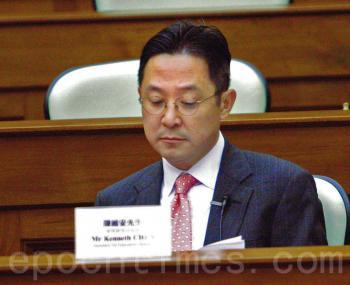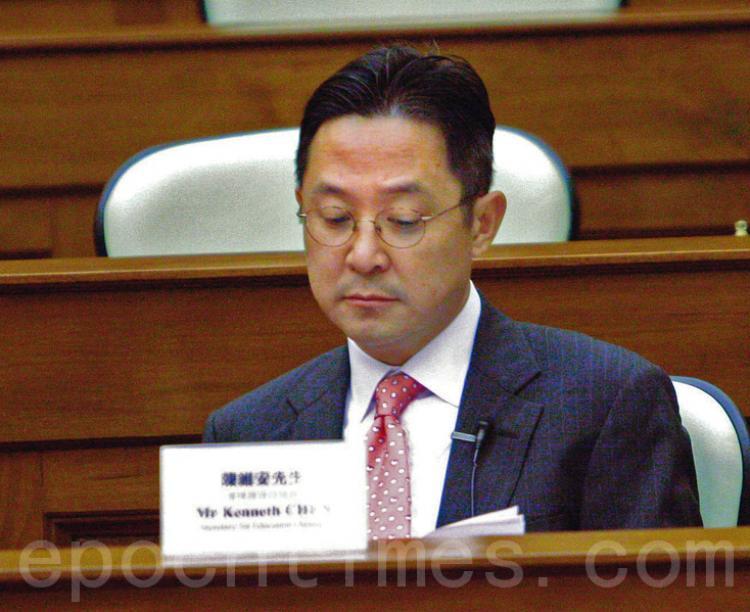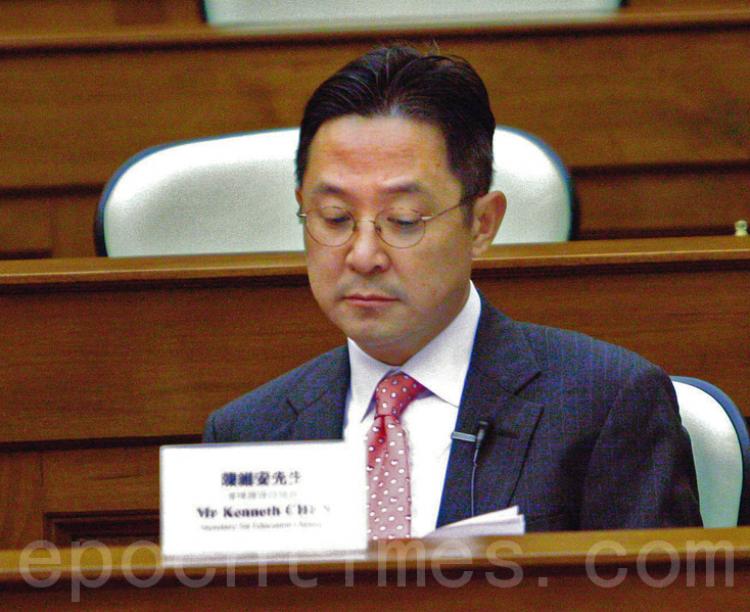In Hong Kong, Questions Over an Education Too China-Friendly
Despite being ostensibly autonomous from mainland China, legislators here say their education sector is fast succumbing to Beijing’s pressure and is marred with political undertones.

Acting Secretary for Education, Kenneth Chen Wei-on attended the briefing due to illness of the Secretary for Education, Michael Suen Ming Yeung. The Epoch Times
|Updated:

